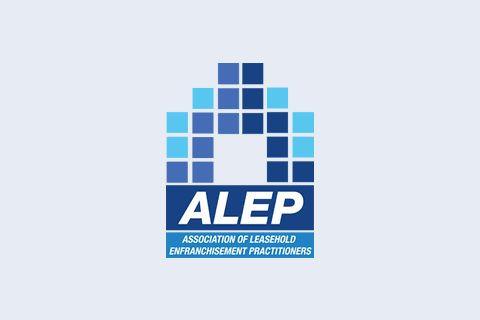So, what does the Duval case mean for enfranchisement cases?
Home | Member News | So, what does the Duval case mean for enfranchisement cases?
The case of Duval v 11-13 Randolph Crescent [2020] UKSC 18 ('Duval') raises a number of issues that have relevance in the field of enfranchisement.

Share this article
So, what does the Duval case mean for enfranchisement cases?
The case of Duval v 11-13 Randolph Crescent [2020] UKSC 18 (‘Duval’) raises a number of issues that have relevance in the field of enfranchisement.
At the ALEP Conference in October 2020, I chaired a session discussing the impact of the case and the likely problems that enfranchisement practitioners will now face in practice because of this.
This article looks specifically at how the Duval case will impact on enfranchisement and if you want to know more about the Duval case generally, then please refer to some more general guidance concerning this case.
For further information on the background to the Duval case see the following articles:
And
‘what does the Duval case mean in practice?’
In this article I am assuming that the reader is already familiar with the key issues in Duval.
Introduction
Duval is a case that concerns alterations and what it says essentially is that where there are absolute restrictions in a lease against alterations, and if the landlord has also given a covenant to keep the leases in similar terms and there is a clause requiring enforcement of the lease terms at the request and cost of the tenant, then the landlord cannot unilaterally vary one of these absolute provisions in any given lease to allow works to be carried out.
So, what is the impact in relation to enfranchisement? Well, there are several:
Participation and the basis for doing so
Very often flat owners will take part in an enfranchisement claim because they want to carry out work after the freehold has been purchased.
Now, if the leases have an absolute prohibition against works then, unless every single flat is taking part in the collective and everyone agrees that the clause can be varied after completion, there is no certainty that buying the freehold will put the enfranchisement company and the tenants in any better position as regards doing the work then they might be in with a third-party landlord.
This is all the more important if it is likely that one or more flat owners will object to what is proposed.
In other words, now, there will need to be an upfront discussion about any such scheme (there would normally need to be so), but the difference now is that unless everyone is taking part, or the agreement of all leaseholders (participating or not) can be obtained up front, then enfranchisement will not assist in bringing any such scheme or variation into effect.
Flat owners wanting to amend ‘restrictive’ lease terms on alterations after completion is often a key reason for enfranchisement and / or is seen as being a standard ‘deliverable’ to enhance the value of the flats after the claim completes. Will this still be possible?
Leases in Central London on the ‘Great Estates’ such as the Cadogan Estate (Chelsea) and Wellcome Trust Estate (South Kensington) usually contain absolute prohibitions against works.
Is very natural for those seeking to enfranchise to want to vary these clauses after completion. This is all well and good if everybody agrees that this is what should be done, and everybody is taking part in the collective claim.
However, if less than 100% of the flat owners take part, there is a very real risk that the leases cannot be varied in this way.
Indeed, there may be claims out there at the moment, where participation agreements reflect that the leases will be varied after completion in this way, but in fact because less than 100% of the flat owners are taking part, but this will now no longer be possible. This is going to cause significant issues between the nominee purchaser and the flat owners concerned.
It will also affect what people are prepared to pay for the right to enfranchise and will mean that surveyors and valuers will have another headache trying to assess how likely it is that such variations may take place.
Ordinarily another factor that will affect what a landlord might pay for the freehold (and therefore potentially a factor taken into account for valuation purposes the freehold might be valued) would be the prospect that the landlord can sell consents for works etc. after completion.
On one level this is good news for tenants, as it appears that it might be possible to argue that they should pay less for their freehold, but on another level, it is not such good news as the fact that unanimous agreement is required is likely to mean that their flexibility to deal with the property as they might wish will be fettered after completion.
So, one key take-away from this is that Participation Agreements with clauses to vary leases with absolute prohibitions after completion won’t work anymore, unless you have 100% participation in the collective, or have all leaseholders signed up in advance to the proposed variations regardless of whether they are taking part or not.
What about development marriage value?
There have been a number of recent changes in planning law around ‘permitted development.’ Brought in by the Town and Country Planning (permitted Development and Miscellaneous Amendments) (England) (Coronavirus) Regulations 2020.
These came into effect on 1st August 2020 and for further details see: https://www.legislation.gov.uk/uksi/2020/632/regulation/22/made
Among other things, these rights allow the construction of an additional floor or floors (up to two additional storeys) subject to certain restrictions. The restrictions are essentially that the newly extended building must not be more than 30 metres in height and the height of the new roof must not be more than seven metres higher than the highest part of the existing roof.
This might be seen as good news for landlords, because if you can automatically add to a building then suddenly the prospect of development and realising development value has got a lot easier.
That may well still be the case, but if there is any discussion as to whether the leases need to be varied to permit any such schemes and/ or as is often the case where a freehold is valued taking into account the fact that the landlord and tenant covenants will fall into the same hands at completion – allowing a ‘complete re-write’ of the building and its structure, this is not going to be possible unless you have 100% participation as now, after Duval if one tenant does not participate, or does not agree to any such scheme then it will most likely fail.
In other words, in a collective with less than 100% participation, the flat owners may find it a lot easier to argue against a ‘development Marriage value’ argument.
What does this mean in practice?
As mentioned above, there may be a number of cases going ahead where participants believe they are going to be able to obtain lease variations with less than 100% participation and unfortunately, this is not going to be possible.
There may well therefore be ‘after the event litigation’ between the nominee purchaser and some of the leaseholders and/ or their advisors. It may also be that any investor who has decided to purchase or help fund the transaction may be less willing to do so if such schemes are no longer possible.
There will be no enhancement in flat value after completion because the offending clauses cannot be written out of the new leases
This does affect marketability in saleability, particularly in the Central London market where the scope for extensive refurbishment, lateral and other types of conversions are very popular. These can include for instance, knocking through from one floor to another, to create staff or household quarters connected to the ‘main’ residence.
It may also be possible for tenants looking to enfranchise to use this as a ‘sword’ against the landlord by threatening to enforce breaches of the leases where the landlord has allowed variation of lease covenants on an inconsistent basis. This should counter the suggestion that there is untapped development potential in the freehold to be unlocked when the freehold falls into the hands of the leaseholders.
These are just a few of the potential impacts of Duval in the world of enfranchisement.
If you would like help and assistance with any of the points raised in this article, then in please do get in touch by emailing le*******@****************co.uk
Mark Chick
17.11.2020


